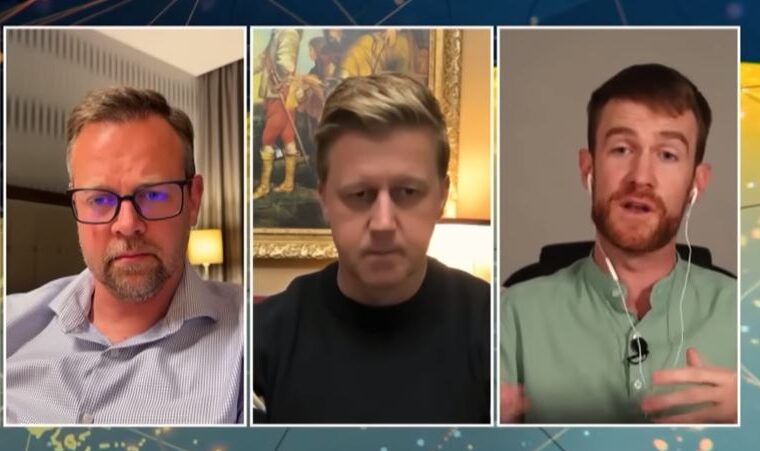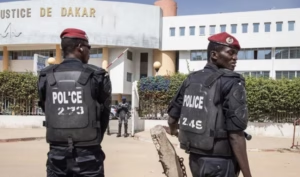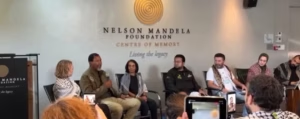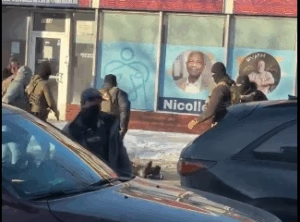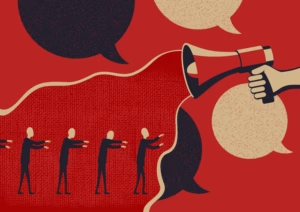South African broadcaster Dan Corder has drawn widespread acclaim for his firm rebuttal of claims suggesting that white South Africans are victims of a systematic genocide, a narrative recently reignited by former United States President Donald Trump.
Corder, known for his incisive commentary and media presence, featured on a panel for Piers Morgan’s YouTube programme. The discussion assembled several prominent South African voices, including former Solidarity policy chief Ernst Roets, radio personality and commentator Gareth Cliff, and veteran journalist Sophie Mokoena.
During the debate, Roets was asked to clarify his statement that South Africa enforces 142 laws that allegedly discriminate against white citizens. In response, Corder directly addressed the claim, asserting that he had personally reviewed the content of the legislation cited.
“Here’s what actually the vast majority of the laws say. They say there needs to be meaningful representation in South Africa to reflect our country fairly on three things, not just one, race, gender, and disability, but these grifters will say that they’re race laws,”
Corder stated during the exchange.
His comment struck a chord with many South Africans on social media, who commended him for fact-checking and offering a broader perspective on a complex and emotionally charged issue. For many, his intervention represented a rare moment of clarity in a conversation often clouded by misinformation and political spin.
Context Behind the Controversy
The panel discussion unfolded against the backdrop of President Cyril Ramaphosa’s recent diplomatic trip to the United States. During that visit, Donald Trump reiterated allegations that white farmers in South Africa were being killed in a systematic campaign of violence, reviving a claim that has been widely criticised for its lack of substantiating evidence.
Within South Africa, this narrative has been echoed by certain advocacy groups, most notably Solidarity and AfriForum. These groups argue that legislative reforms and political rhetoric, such as the Expropriation Bill and the Basic Education Laws Amendment (BELA) Bill, are targeted attempts to diminish Afrikaner influence and, in their view, threaten the survival of the Afrikaner community.
These allegations often hinge on proposed land reform policies, such as expropriation without compensation, which have sparked intense debate within the country and abroad. Critics of these laws argue they could be weaponised to unjustly strip land from white owners, while supporters see them as vital steps toward redressing the deeply entrenched inequalities of South Africa’s colonial and apartheid past.
Dissecting the “Kill the Boer” Debate
The emotionally charged panel also addressed the contentious issue of the struggle song “Kill the Boer.” Journalist Sophie Mokoena, drawing on her decades of experience reporting on South African politics, contextualised the phrase, stressing that it is not intended as a literal incitement to violence.
“The chant has historical context and is not a call to action,”
Mokoena explained, seeking to separate symbolic expression rooted in anti-apartheid resistance from the present-day fears often associated with the phrase.
She went further to express concerns that affect a broad spectrum of South Africans—irrespective of race or background.
“South Africa’s main concern is the high crime rate that has citizens living in fear,”
Mokoena noted, redirecting attention to the country’s pressing security challenges, which disproportionately impact the poor and working-class populations.
Unpacking the Role of Public Discourse and Misinformation
The incident reflects a broader challenge in contemporary political discourse: the blurring of the line between advocacy and disinformation. While concerns about rural safety and land rights are genuine and deserve rigorous debate, claims of an orchestrated genocide against whites in South Africa have not been substantiated by independent data or government findings.
Groups like AfriForum and Solidarity, representing largely Afrikaans-speaking minorities, continue to voice apprehensions about what they see as increasing marginalisation. However, critics argue that framing these concerns within an exaggerated narrative of racial persecution can inflame tensions and distract from the country’s real and shared problems.
In this landscape, media figures such as Dan Corder play a crucial role in interrogating claims, presenting evidence, and challenging popular narratives that may not stand up to scrutiny. His detailed dissection of the laws referenced by Roets exemplified a demand for accuracy and accountability in public debate.
Roets himself, who remains a prominent figure within the Afrikaans community, has long been associated with efforts to frame white South Africans as victims of post-apartheid policies. Yet his statements are increasingly being called into question, not only by journalists and analysts but by citizens who expect a more nuanced and fact-based conversation.
A Nation in Need of Balance
The widespread support for Corder’s intervention underscores a growing public desire for honesty, context and fairness in national dialogue. For a country still grappling with the legacy of its past while trying to forge an inclusive future, that desire could not be more urgent.

